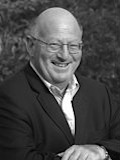GOTO is a vendor independent international software development conference with more that 90 top speaker and 1300 attendees. The conference cover topics such as .Net, Java, Open Source, Agile, Architecture and Design, Web, Cloud, New Languages and Processes
Dave Thomas, TweetFather of OTI, CEO of Bedarra Corp.

Biography: Dave Thomas
Dave Thomas has a wide spectrum of experience in the software industry as an engineer, professor, consultant, architect, executive and investor. Dave is founder and CEO of Bedarra Corporation; which provides virtual CTO and CEO, business mentoring and seed investment to emerging companies. Recently formed Bedarra Research Labs undertakes speculative research on applications of emerging software technologies.
Dave is best known as the founder and past CEO and president ofObject Technology International Inc. (formerly OTI, now IBM OTI Labs)and led the commercial introduction of object and component technology.The company is often cited as the ideal model of a software technologycompany.
He was also the principal visionary and architect for IBM VisualAgeSmalltalk and Java tools and virtual machines including the initialwork on popular multi-language Eclipse.org IDE. OTI pioneered the useof virtual machines in embedded systems with Tektronix shipping thefirst commercial products in 1988. He was instrumental in theestablishment of IBM's Pervasive computing efforts and in particularthe Java tooling.
Dave is an adjunct research professor at Carleton University, and the University Of Queensland and is widely published in the software engineering literature. He is a popular humorous albeit opinionated keynote speaker. Dave remains active in various roles within the technical community including ECOOP, AOSD, Evolve, and Agile Development Conference, Agile/XP Universe and OOPSLA Onward. He is a founding director of the Agile Alliance and most recently a founder of Open Augment Consortium. Dave writes expert columns in Otland Online in Germany, and the Journal Of Object Technology in Switzerland where he also serves on the editorial board.
Dave is member of GOTO Aarhus Program Advisory Board
Presentation: TweetMature Legacy Seeking Sexy New Technology for Fun and Profit Extracting Gold from Legacy Code
In this talk we describe the huge opportunity for innovation in Legacy systems! We argue there has never been a better time for creative legacy renovations which leverage new hot technologies – languages; data bases; web; cloud and Agile practices. Many talented developers turn up their noses or run away in fear from what they see as baroque environments with arcane tool chains. Talent panic often pushes for a grand rewrite using modern technology. Sadly experience shows the grand rewrite has too much risk and way too little business value. Hence given legacy investments the only option is innovation!
We illustrate legacy innovations via several case studies spanning a wide spectrum of legacy systems including: mainframe IT; Unix products; military systems; telecom; data banks and multi-vendor EAI and EAP applications. We explain the appropriate practices, teams, and tools to achieve high impact renovations by inserting new technology. We discuss appropriate investments in training, tooling and practices for different legacy environments. We look at approaches to ensuring lasting high value relationships between legacies and bleeding edge technology.
Presentation: TweetThink? Compute! See!! - End User Programming for Thinkers
In this talk we discuss our experience trying to make state of the art
software technologies including functional programming, collaborative computing
and visualization consumable by demanding customers we call Thinkers. The
emerging discipline of Computational Science brings Thinkers and Software
Experts together to create environments for Thinkers.
Thinkers are well educated domain and problem focused computationally
literate end users. On a day by
day basis thinkers live in BigData to collaboratively solve their business and technical
challenges. Thinkers need a capability to Think-Compute-See
and to actively participate in problem solutions. They reject being passive misunderstood requirements-changing
Agile customers; have no use for end user
tools for dummies; and question the cost
and complexity of accepted software
engineering approaches. Lacking
better alternatives they often resort to hodgepodge collections of scripts
and arcane tools.
Presentation: TweetFostering Effective Collaboration Between Designers and Developers During Envisioning and Development
Effective collaboration between designers and developers is essential for the success of any software project. While we tend to dwell on the conflicts, tensions and differences between these groups of people, you’ll be surprised to discover that they have more in common than you think.
In this talk, Dave takes a brief look at the similarities between these two groups, then presents a number of techniques and strategies that can used to build respect, foster trust, and improve communications between them, while at the same time, delivering successful products.
Topics will include how to effectively pair designers and developers to minimize conflict and maximize productivity, how to avoid the ‘bicycle shed’ effect, how to create a product vision and roadmap both designer and developer can agree on, how to conduct upfront design in an Agile project, developing an honest contract between designers and developers, why developers should use visualization, why designers should code, why self-managing teams need benevolent dictators, how to decide what not to build, why designers and developers need to be domain experts, and when designers and developers should stop listening to their customer.
Keywords: Agile, Agile development, product management, project management, product design, product planning, new product definition, product verification, agile requirements, acceptance criteria, requirements capture.
Target Audience: This session is intended for product managers, development managers and product team members (e.g. designers, developers, analysts, testers) who are involved in or responsible for product planning, definition and design.
